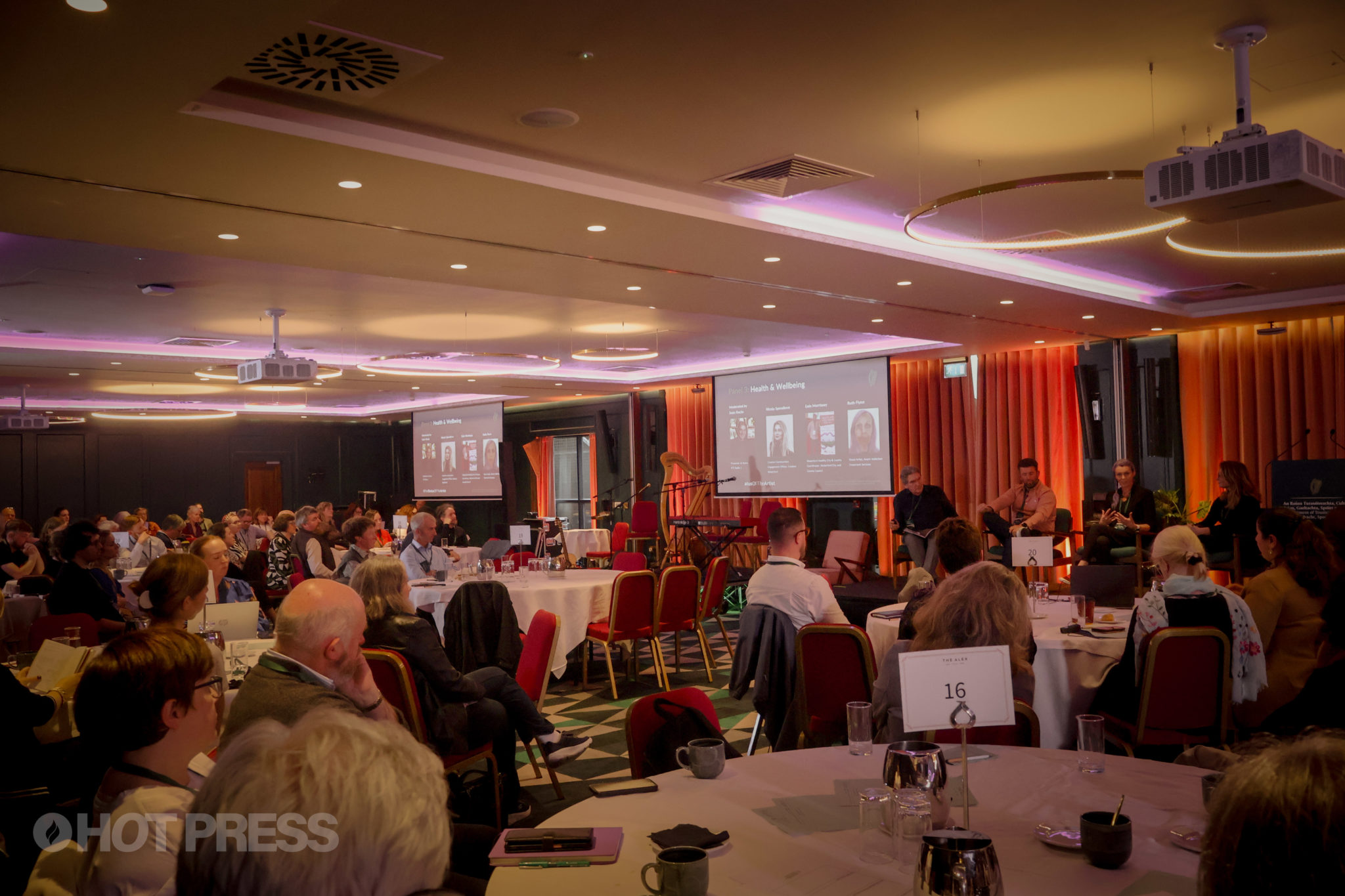- Culture
- 27 May 24

According to a report published today, BIA recipients are investing eight hours a week more – and €550 a month more – into their creative practice, compared to those in the control group.
Artists and arts sector organisations are coming together at a conference in Dublin this morning, to discuss the impact of the first year of the Basic Income for the Arts (BIA) pilot scheme.
The conference is being hosted by the Minister for Tourism, Culture, Arts, Gaeltacht, Sport and Media, Catherine Martin – who is also set to speak about the latest findings into the pilot scheme.
Launched in 2022, the BIA is a pilot research programme, which aims to inform future government policy on how best to support Ireland’s artists and creative arts workers. The pilot scheme is examining the impact of a basic income on artists and creative arts workers over a three-year period.
Payments of €325 per week are being made to 2,000 eligible artists and creative arts workers, who have been selected at random.
The BIA was developed as a randomised control trial, made up of two groups of people: one group (2,000 people) that are receiving the basic income payment, and a control group (1,000 people) that are not.
Advertisement
“I am pleased to bring many of Irelands arts resource and funding bodies and artists together today at this conference to examine the status of the artist in Ireland," Minister Martin commented ahead of the conference. "The instinct for artistic and creative expression is fundamental for all of us. Support for the arts and professional arts practice has been a key priority for me as Minister.
"Today I want to hear the voice of artists on our next steps, building on the increases in supports in recent years. I am also publishing a first full year impact paper on the Basic Income for the Arts pilot scheme which continues to show positive outcomes for those in receipt of the payment."

The report – Impact Assessment (First Year) of the Basic Income Pilot Scheme – being published today outlines the numerous changes experienced by BIA recipients within the first year of receiving the payment.
The report finds that, compared to the control group, BIA recipients:
- Spend an average of eight hours a week more on their creative practice
- Invest €550 more each month in their practice (on equipment and materials, advertising and marketing, workspaces, and work travel)
- Are more likely to have completed new works in the past six months (an average of 3.6 pieces more)
- Spend 2.7 hours a week less working in a sector other than the arts
- Are less likely to name 'low pay' or 'lack of jobs or clients' as reasons for inability to work in the arts
- Can more easily 'make ends meet', and are more likely to be able to afford basic items
- Have higher life satisfaction
- Are less likely to have felt depressed or anxious
“The Basic Income makes a strong statement at home and abroad about the value that Ireland as a nation places on artistic practice both in terms of our personal and collective wellbeing, and also the importance of the arts to our identity and cultural distinctiveness," Minister Martin notes.
Advertisement
Today's conference will feature a number of panel discussions, which will be centred around Income Supports for Artists, Creative Climate Action, and Health and Wellbeing. In addition, the National Campaign for the Arts are hosting a Making Space for the Arts panel.
The conference will also feature performances by Krea and Adam Mohamed.
Just published: research on the impact of the Basic Income for the Arts pilot one year on.
The results are positive which is welcome news.
Artists too often struggle for the income to meet even their basic needs. This initiative changes that.https://t.co/44UlvonqHu pic.twitter.com/NPAdU587G1
— Catherine Martin TD (@cathmartingreen) May 27, 2024










